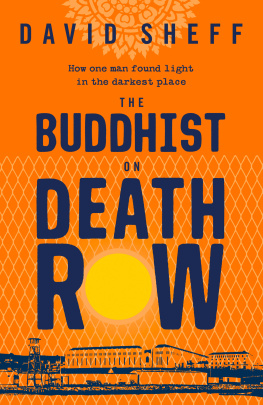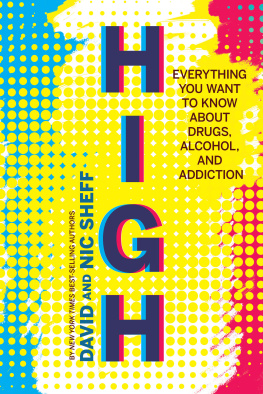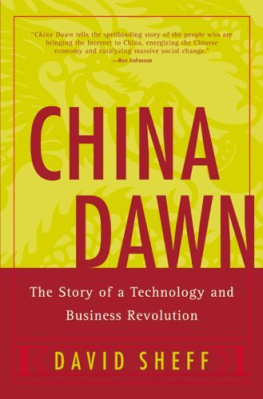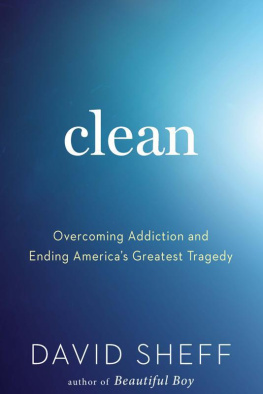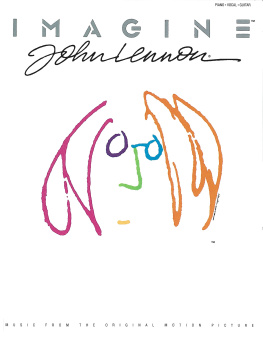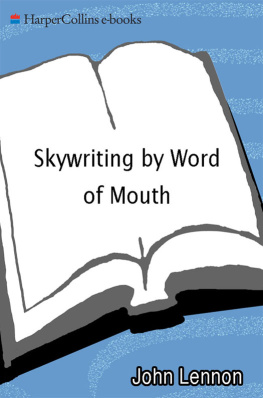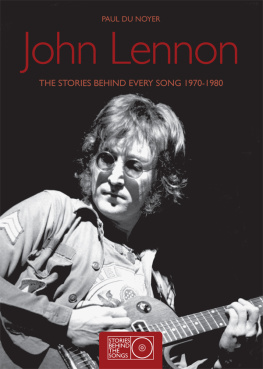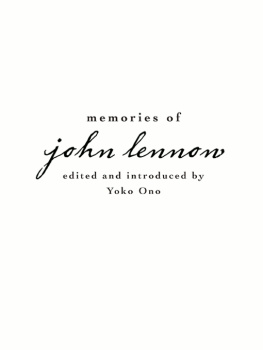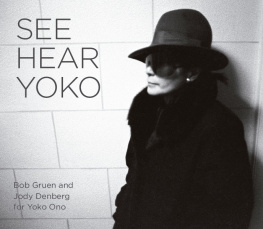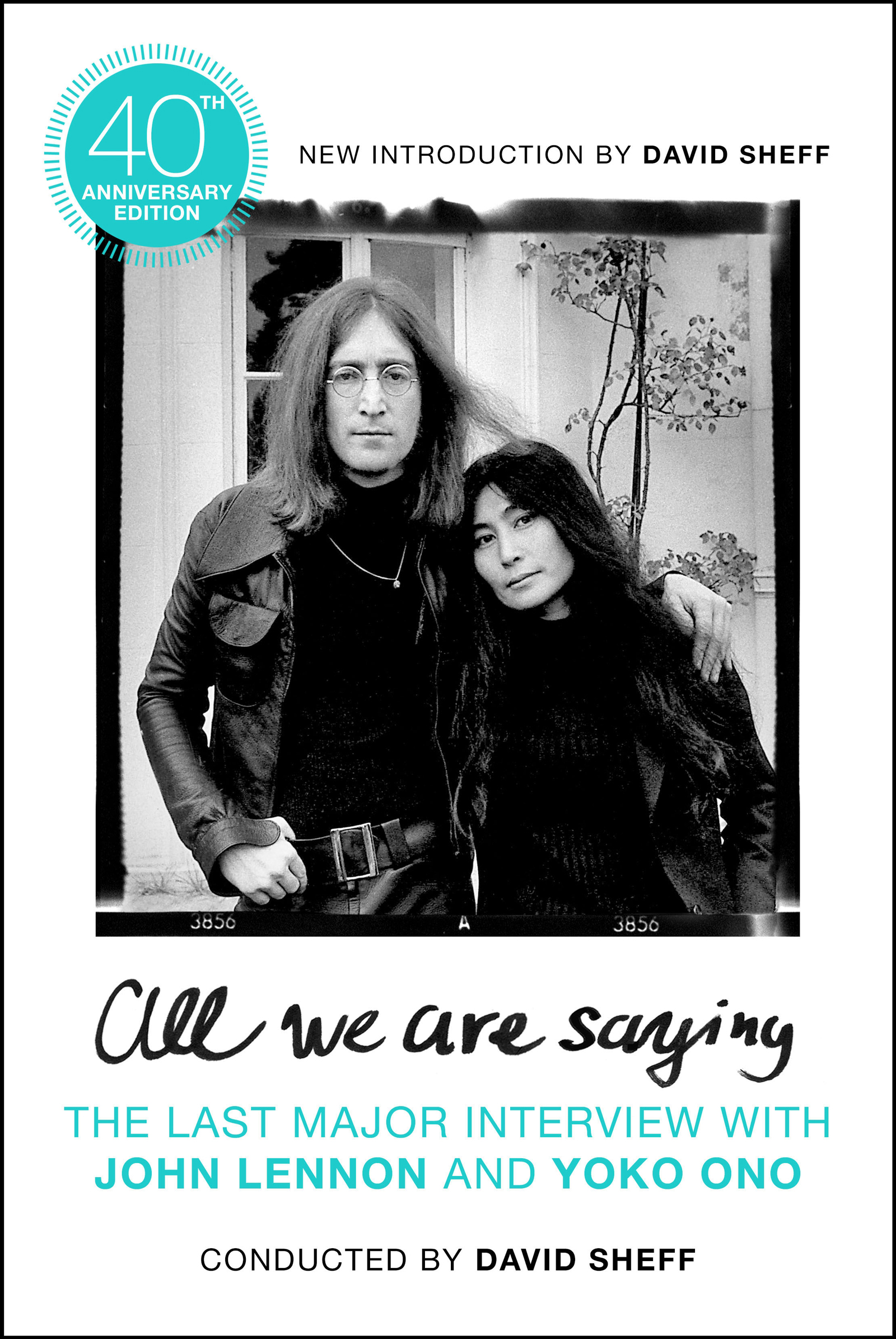The author and publisher have provided this e-book to you for your personal use only. You may not make this e-book publicly available in any way. Copyright infringement is against the law. If you believe the copy of this e-book you are reading infringes on the authors copyright, please notify the publisher at: us.macmillanusa.com/piracy.
Her life was saved by rock n roll is a line from the iconic Velvet Underground song, but I could have written it, because rock n roll saved mine.
As a teenager, I appeared fine on the outside but suffered intense anxiety and depression. I felt different from other kids and was isolated from them. The popular kidseveryone but me, it seemedpegged me as weird, which I was. Angst kept me awake through haunted nights listening to the Terror through the wall, as Allen Ginsberg described it. To get through those interminable hours I smoked endless joints and read the entire literary canon for teenage misfitsalong with Ginsberg, it included Salinger, Vonnegut, Miller, Heller, Burroughs, Kerouac, Kafka, et al. But while the drugs and writers helped me tread water, nothing materially changed until I was awake one 3:00 A.M. twirling the Oreo-shaped dial of a Motorola transistor radio.
I hid under the covers with the volume low so my parents wouldnt hear as I skipped past stations broadcasting country music, sports scores, tomorrows weather, and fire-and-brimstone evangelists, when I was stopped by a mesmerizing, gravel-voiced DJ on KDKB-FM, Phoenixs underground station. The DJ ranted about race riots, the immoral war in Vietnam, and the deceitful U.S. president (he quoted a song by a guy named Tom Paxton: Hey, hey, LBJ / How many kids did you kill today?), and then paused for a breath. But for now, take a break from the chaos and light up, kick back, and listen. Be prepared to have your mind blown. He said hed used karma and magic to get hold of an unreleased song by the Beatles, a track on a forthcoming album. Its by John Lennon, he said. So come with me on a magical mystery tourdown to Strawberry Fields, where nothing is real.
The DJ played the song three times. And as hed promised, my mind was blown.
By then the Beatles had more number one records than anyone in history. Lennon and his band had performed at Shea Stadium and on The Ed Sullivan Show, and, in 1965, the Queen of England had presented John with the MBE, the Most Excellent Order of the British Empire, an award he irreverently returned. Id heard of the Beatles, of course, but hadnt paid attention. I was listening to inane pop records by the Monkees, the 5th Dimension, and Sonny & Cher (dont judgeI was only eleven).
The day the DJ introduced me to Lennon, I rode my bike to a record store and spent my life savings ($130 earned over the course of a year of flinging the Scottsdale Progress newspaper on our neighbors porches) on Beatles albums. From then on, I was first in line when a new Beatles albumor, later, solo Lennon LPwas released.
I no longer felt like a stranger in a strange land. Rather than being ashamed of being different, I celebrated it; with John, I was in good company. In Strawberry Fields Forever, John sang, No one I think is in my tree, which comforted me because I didnt think anyone was in my tree either, and in the song John promised, Itll all work out.
The surrealistic lyrics and psychedelic sounds of Beatles songs awakened something in me. I felt hopeful. Alive. Every Beatles song thrilled me. Only later did I learn that the songs that moved me most were all primarily written by John: Along with Strawberry Fields Forever, they included Lucy in the Sky with Diamonds, I Am the Walrus, Come Together, I Want You (Shes So Heavy), Glass Onion, andI read the news today, oh boyA Day in the Life.
In the late 1960s, Lennon released several experimental albums with his wife, Yoko Ono, that were then a bit too experimental for me to appreciate. However, songs on Johns first solo albums, released in 1970, 71, and 73, electrified me. Political songs like Working Class Hero, Woman Is the Nigger of the World, Gimme Some Truth, and, of course, Imagine and Give Peace a Chance gave me purposeto do something about what I saw as the bleak state of the nation. I volunteered for Cesar Chavezs United Farm Workers on the lettuce and grape boycottsprotests against the exploitation of farmworkersand then, though I was too young to vote, I left home to work on George McGoverns presidential campaign. Meanwhile, just as Johns political songs inspired action, his personal songs, including Mother, Well Well Well, I Found Out, and God, inspired me to look inside to find the source of the pain Id experienced since I was young.
Following the McGovern defeat (which devastated methe nation was left with another term for Tricky Dicky, eventually cut short because of the Watergate break-in), I began college at Berkeley, where I wasnt any weirder than other students. That led to a job as assistant editor at the newly founded New West magazine, where I worked as a researcher on stories about the Peoples Temple, Zodiac Killer, and murders of Mayor George Moscone and Supervisor Harvey Milk. I began freelancing for local magazines but aspired to write for Playboy and Rolling Stone, whose interview features were celebrated. I inundated their editors with query letters. Their responsesform rejectionsfilled cardboard boxes.
In early 1980, I was in New York and, on a whim (I didnt have an appointment), decided to pop into the Playboy editorial office. My timing must have been good, because Barry Golson, the executive editor who oversaw their legendary interview feature, agreed to see me. Barry was renowned, one of the most respected editors in the business. Hed published seminal interviews with Bob Dylan, Marlon Brando, and many others, including the famous Jimmy Carter interview in which the thenpresidential candidate admitted he lusted in his heart, a confession that almost cost him the 1976 election.
Im not sure where my boldness came from, but I teasingly chastised Barry for ignoring my query letters. His response: Slow down and have a seat.
We talked for a while and then Barry asked if I had suggestions for interviews. I pitched John Belushi and Dan Aykroyd, who were about to release a movie, The Blues Brothers, based on a Saturday Night Live skit. I was stunned and thrilled when Barry said to go for it. Then, just as I was exiting his office, he stopped me. By the way, he asked, do you have any way to reach John Lennon?
I didnt but said, Sure.
In the prologue to this book, I tell the story of my efforts to reach John and Yoko, which were unlike any subsequent experiences trying to connect with potential subjects. All Ill say here is that it involved the blessing of the cosmos.
The timing of Barrys challenge was fortuitous. In spite of accolades and accomplishments beyond most peoples imagining, by the mid-1960s, John was miserable. He would describe feeling lost and empty, which, if you listened closely, was apparent in many of his songs. Its part of the reason I had connected so viscerally with him when I was a teenager; his inner turmoil reflected mine.
In 1966, John met Yoko Ono, a momentous event he describes in the pages that follow. They became inseparable, marrying in 1969. Contrary to fake-news reports (even then), Yoko didnt break up the Beatlesthey were already disassemblingbut she didnt help. John describes moving on from the boys when he fell in love, and, as he says, The old gang of mine was over the moment I met her.


